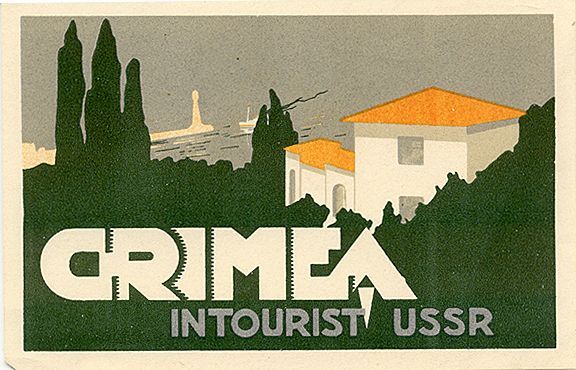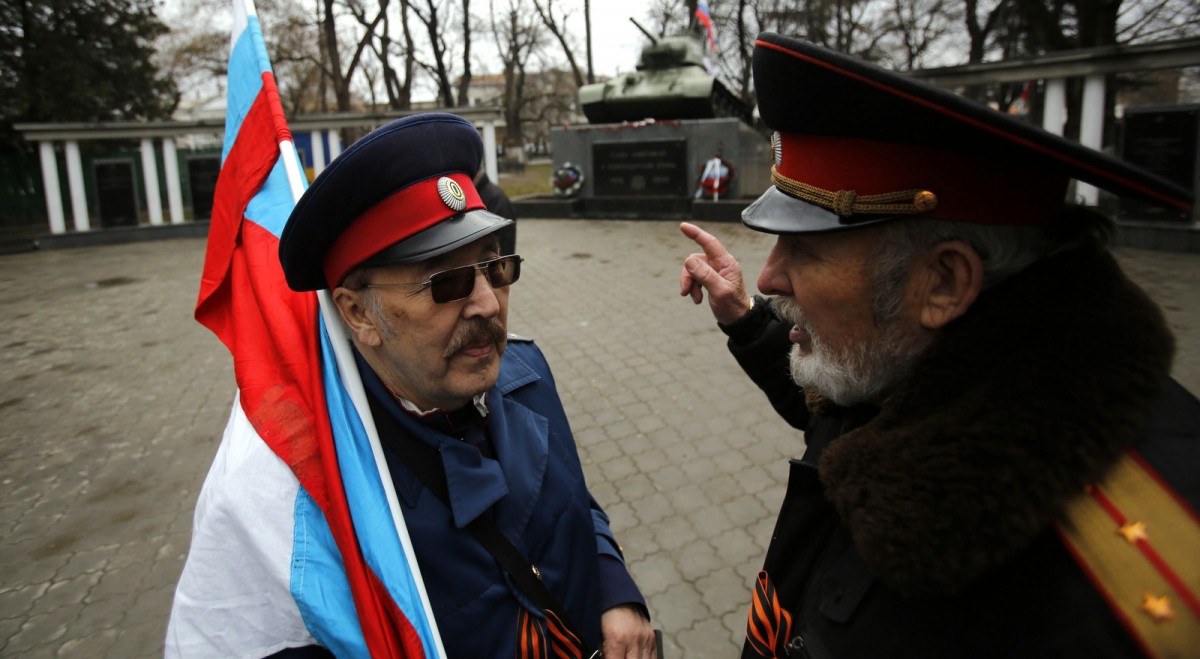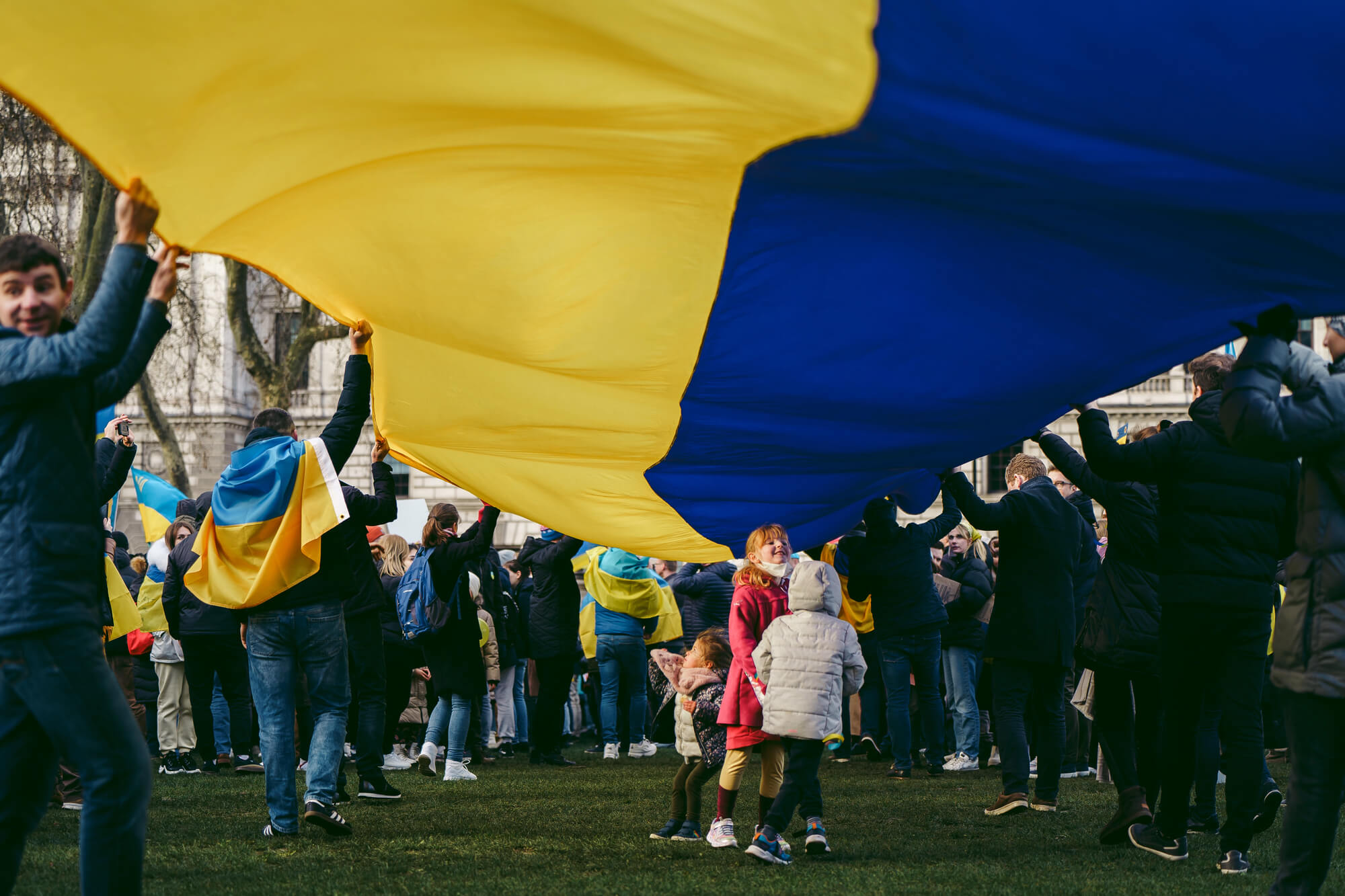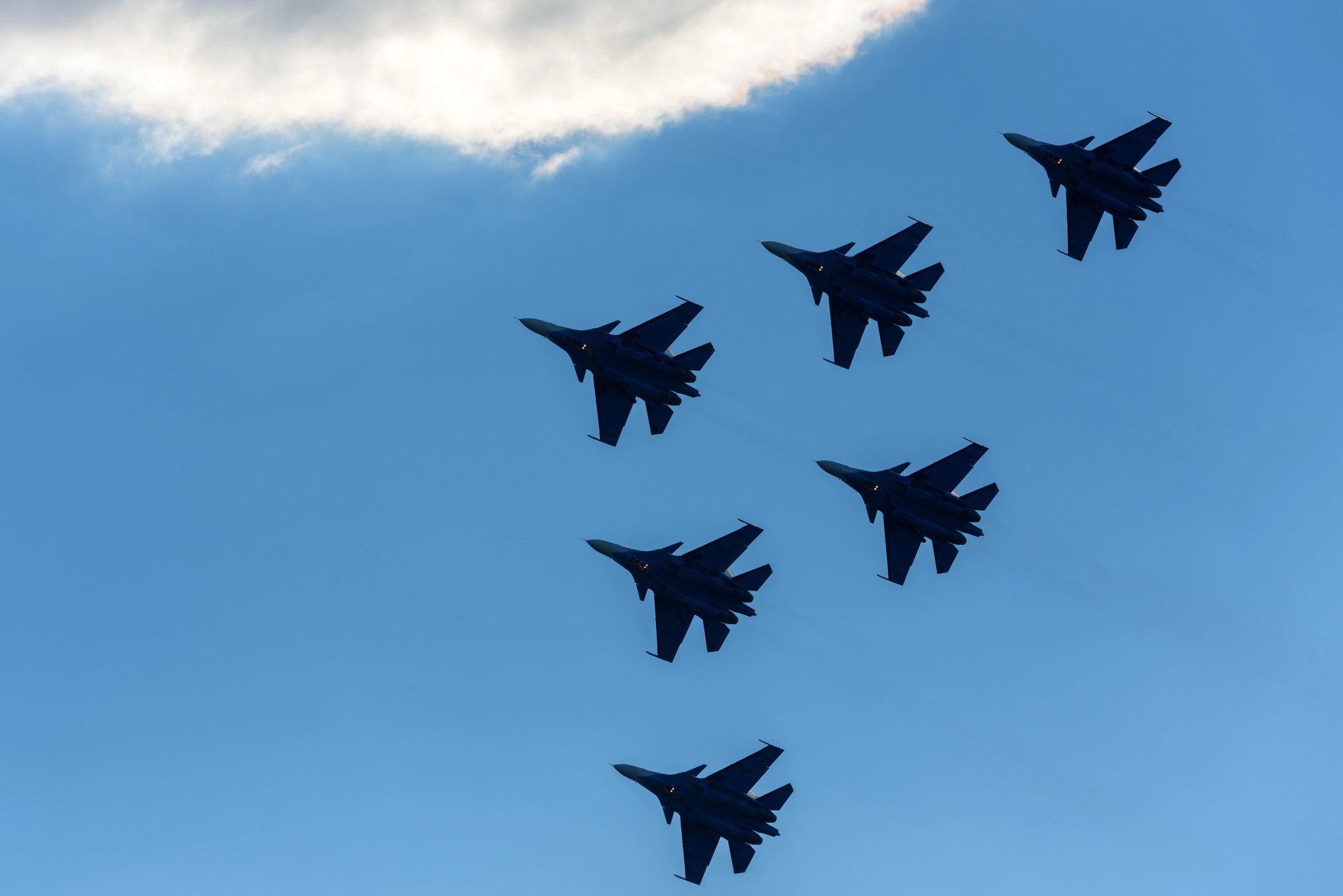Russia has annexed Crimea in March 2014. What has happened since then? We want to look through the main arguments on what makes pro-Russian Crimeans happy. To do this, we looked through a thread “Positive moments” after the annexation at Sevastopol.info forum. This forum is heavily anti-Ukrainian and users supporting Ukraine are often banned.
The reasons could be divided into a number of categories, ordered from most important to least important.
1. Homo Sovieticus
Tourism advertisement poster to visit Soviet Crimea

Despite the fact that Soviet Union collapsed 23 years ago, it is not erased completely from minds of people. This is particularly true for those who migrated from one USSR region to another. 2001 Ukrainian census says that population of Crimea (excluding Sevastopol) was about 2.0 mln out of which 994 thousand were born in Crimea, and 134 thousand were born in other Ukrainian regions, while 640 thousand were born in the rest of the former Soviet Union (380 thousand in Russia). Sevastopol, former Soviet naval base, has very high share of population migrated from Russia (27 percent). For comparison, the share of the population migrated from other non-Crimea regions of Ukraine was just 17 percent. Furthermore, Crimea has almost half a million of pensioners who are likely to regularly communicate and compare their standard of life with standards of life in other former USSR countries.
Not surprising, USSR nostalgic reasons dominate the list of “improvements”. For example, some Crimeans are proud to be part of big country as their parents and grandparents did, have Putin as president, have rubble as currency, and celebrate New Year at 12:00, not 10:00 or 11:00 (which was 12:00 Ukrainian time). Absence of Ukrainian tridents and Russian (Soviet) anthem makes them happy as well.
We do not know whether Ukraine can do something with this. Even some people in Western Ukraine miss USSR (and really like Belarusian model) with affordable basic goods. It takes time/generations to change these views.
2. Language
The same census says that more ethnic Ukrainians in Crimea speak Russian (292,923) then Ukrainian (198,855). Russian language dominated all spheres of everyday life. Obviously, some attempts of radical Ukrainization were not accepted easily. Learning an extra language is “considered” as disadvantage and some Crimeans are happy that their children do not study Ukrainian in kindergartens and schools. Furthermore, documentation in Russian makes easier communication in courts, banks, and insurance companies. Finally, “proper” Russian is spoken on radio, on-air TV, and in cinemas.
While we strongly support Ukrainian as the only official language in Ukraine, there is a thin line between discrimination of minority languages and promotion of national identity. Ukrainian language has to be promoted but the choice of language has to be endogenous.
Pro-Russian people dressed in old Soviet style uniforms talk in Simferopol, Crimea, Ukraine, Friday, Feb. 28, 2014

AP Photo/Darko Vojinovic
3. Pensions and Public Sector
As we discussed above, Crimea has half a million of pensioners who have nostalgic memories about USSR. This population segment along with public servants is bribed by increases in salaries in public sector (police, kindergartens, schools, military service) and pensions. Furthermore, pension age is not increased as well.
Ukraine does not have huge oil and gas reserves which makes increases in social payments problematic. There is also need for a pension reform which could give people incentives to save more and choose when they want to retire.
An empty railway station is seen in Simferopol, Crimea, Dec. 27, 2014. On Dec. 26, 2014 Ukraine blocked rail and bus travel between the mainland and the peninsula that was annexed by Russia in March. The Crimean customs service said automobiles also were blocked at two of the three crossing points on the isthmus leading to Crimea, but traffic resumed in late afternoon.
AP Photo/Anton Volk
4. Infrastructure, Healthcare and Education
Both healthcare and infrastructure sectors are clear indicators of “changes”. Many people use public transport every day and occasionally get sick, their children go to schools and universities. Therefore, even minimal cosmetic changes might have an effect. For example, a few new benches in local parks could attract more election votes than hours spent in meeting with the same voters. While Russia has brought to Crimea stricter land allocation rules (e.g. apartment building was even demolished), some investment into infrastructure has also been made. This includes anecdotal evidence of road construction works, increased number of free camp sites, and improved public transport. Improvements in Health Care include renovation of some hospitals and free of charge basic medical care and drugs. Since Crimea was annexed by Russia, there is no need to “import” Russian drugs. Drug documentation in Russian makes some Crimeans happy as well.
Positive changes in education are also linked to “return” to Soviet system. For example, children are assessed using 5-points system (not 12-points), start school at 7 years, have free optional courses, participate in sport competition in Russia, and study Russian history and literature (which are back to school program). Finally, kindergartens are supplied with Christmas trees and do not request any funds from parents.
Given severe budget constraints, there are few areas for improvements. First, regulation in health care sector. Ukrainian drugs could be cheaper but their quality is often questionable due to a number cases related to fake drugs and impurities in generics. We observe a typical asymmetric information setup when Ukrainian drugs do not always contain what they are supposed to. In contrast, foreign companies care about reputation and avoid fake drugs. Introducing EU certification of Ukrainian pharmaceutical companies could serve as a quality signal for Ukrainian drugs. Second, transparency in infrastructure decision making and reduction in corruption could boost infrastructure sector and ever result to spillover effects to other sectors of economy. Third, control for quality of education is also important. This could be implemented through a number of ways, including school ranking system based on graduation examination. VoxUkraine has already talked about few directors for improving efficiency of public sector. Finally, Ukrainian government has to be careful about reduction of public spending. People want to see changes around them like some road construction works and renovating hospitals. Stimulating Ukrainian economy should be one of top priorities.
5. Business
Even though changes in business environment are mostly negative, forum users did their best to find at least some positive changes. The main advantage is mobility of labour (opportunity to work in Russia without registration) and access to Russian market. Some Crimeans are also happy that new Russian products and companies replaced Ukrainian products and companies. Other positive features seem to be temporary, and include cheaper fuel and tax holidays for Crimean companies. Surprisingly, some forum users mentioned not paying back loans to Ukrainian banks as another improvement in their lives.
Extra (sarcastic):
Finally, despite the forum thread was targeted on positive changes, some changes are not that positive
- More expensive tobacco products could lead to reduction in tobacco consumption.
- Reduction in number of tourists allowed local people to have a proper beach season
- Opportunity to vote for local patriots at elections
- Noise from air jets as it was in Soviet Union when grandmothers were young
- Opportunity to be drafted to Russian Army to go through real school of life
- Every evening is romantic with candles because of electricity supply cut off. Electricity expenses are also reduced
- Higher food prices result in healthier population, in contrast to obese Europeans and Americans
Ukrainians face a lot of difficulties, but life in Crimea is not easy as well. There are some positive changes due to bribing pensioners and public sector, but situation in business has worsened. If Ukraine ever wants to return Crimea, there is an urgent need for reforms. Given the fact that Crimea is still connected to Ukraine through numerous personal links it is not known how born-in-Ukraine generation of Crimeans will vote in future.
Attention
The author doesn`t work for, consult to, own shares in or receive funding from any company or organization that would benefit from this article, and have no relevant affiliations



